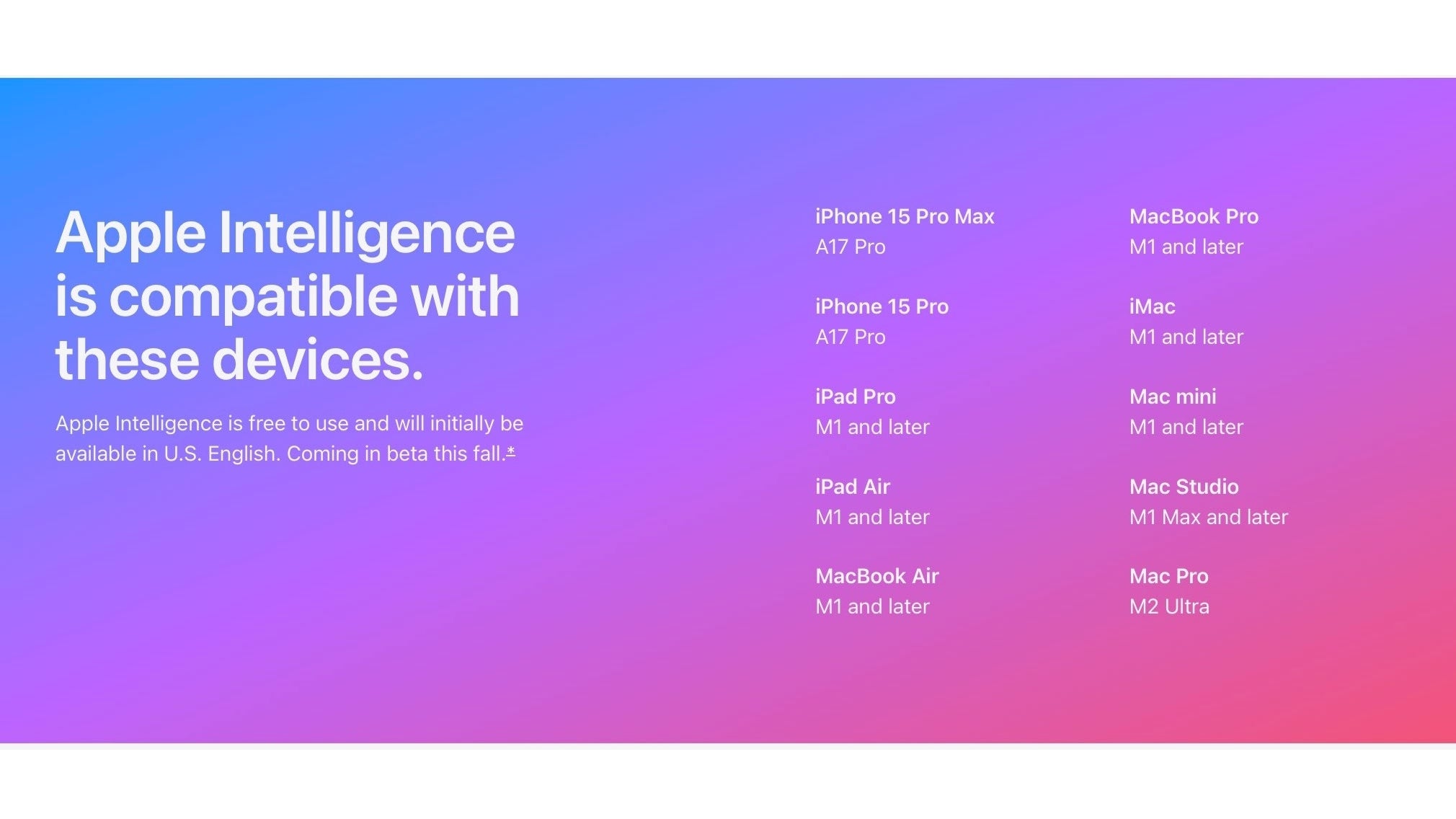Apple's highly anticipated AI features, dubbed Apple Intelligence, are set to revolutionize the iPhone experience - but only for owners of the latest iPhone 15 Pro and Pro Max models. This exclusivity has sparked debate about whether it's a necessary technical limitation or simply a ploy to drive sales of Apple's most expensive devices.
The AI Divide
At WWDC 2024, Apple unveiled an array of impressive AI capabilities coming to iOS 18, including:
- A dramatically improved Siri with contextual understanding
- AI-powered photo editing tools
- Semantic AI for controlling apps via natural language
- Integration with ChatGPT
However, these features will only be available on the iPhone 15 Pro, iPhone 15 Pro Max, and future Pro models - leaving owners of the standard iPhone 15 and older devices out in the cold.
Apple's Justification
Apple executives John Giannandrea and Greg Joswiak defended the decision, citing hardware requirements:
- The A17 Bionic chip in the Pro models has a 16-core Neural Engine capable of 35 trillion operations per second (TOPS)
- This is double the neural processing power of the A16 chip in the standard iPhone 15
- Pro models have 8GB of RAM vs 6GB in non-Pro iPhones
According to Apple, running large language models for on-device AI is incredibly computationally expensive and requires this additional horsepower.
Skepticism Remains
Critics argue that Apple's explanation doesn't fully add up:
- The A16 chip can still achieve 17 TOPS - seemingly enough for some AI features
- Cloud-based features like ChatGPT integration don't require on-device processing
- Samsung has backported AI features to older Galaxy devices with less powerful chips
Some speculate that Apple is using AI as a carrot to entice users to upgrade to more expensive Pro models.
A Staggered Rollout
Adding to the confusion, many of Apple's AI features won't arrive until 2025:
- iOS 18 this fall will include some minor Siri improvements
- The full semantic Siri capabilities are slated for next year
- Apple is still building out its cloud infrastructure for AI processing
The Bottom Line
While Apple may have valid technical reasons for some AI exclusivity, the complete lockout of non-Pro devices feels heavy-handed. As AI becomes a cornerstone of the smartphone experience, Apple risks alienating a large portion of its user base.
The success of this strategy will likely hinge on how compelling these AI features prove to be in real-world use. If Apple Intelligence lives up to the hype, it could drive a significant shift towards Pro iPhone models. If not, Apple may face backlash for creating an artificial divide in its ecosystem.

